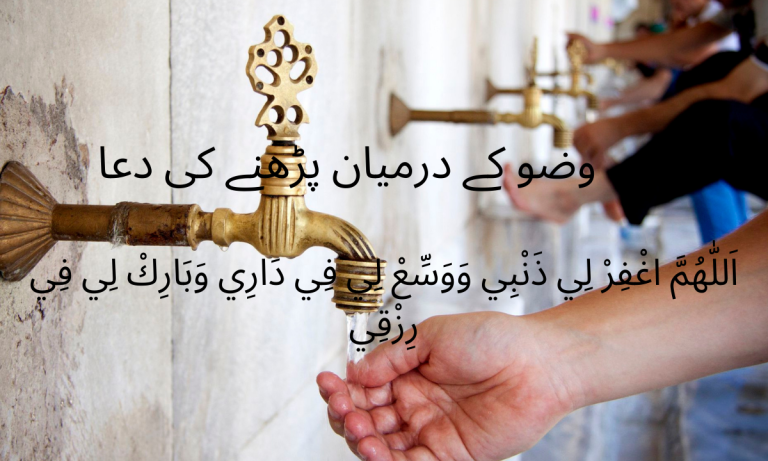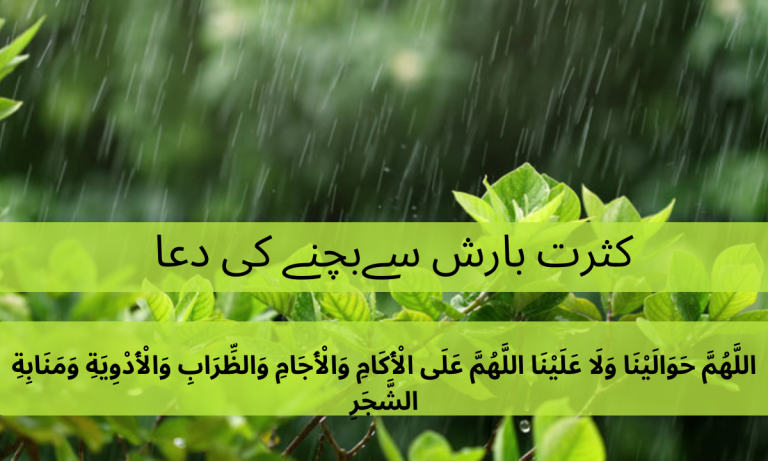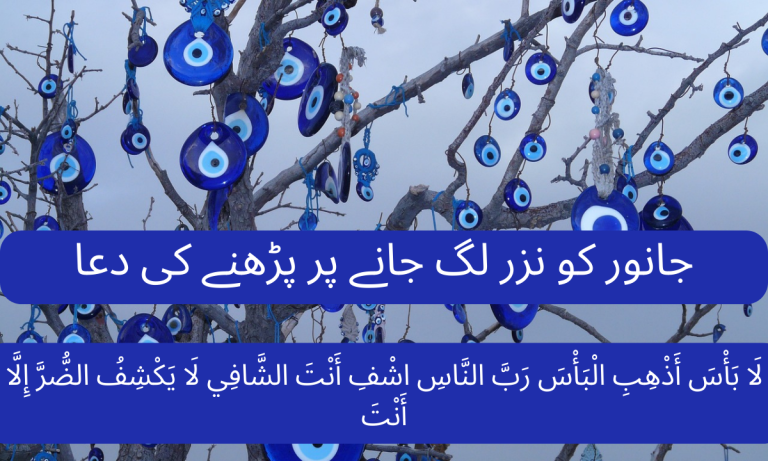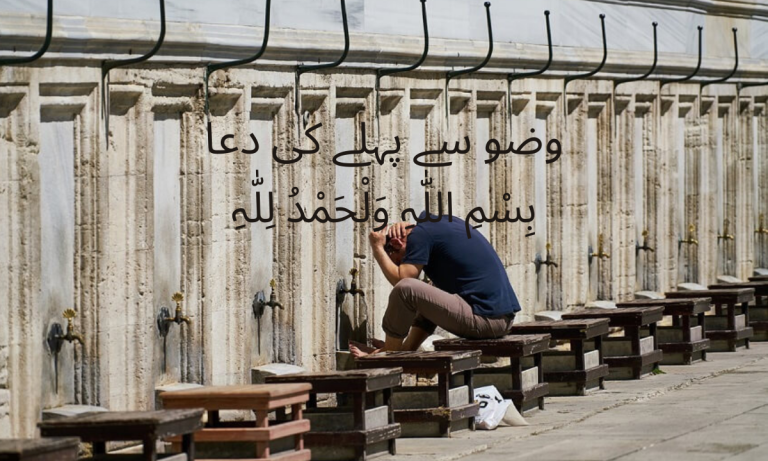40 Rabbana Duaas Qurani Ayat Read Online

40 Rabbana Duaas Qurani Ayat Read Online Changing what Allah (swt) has already decreed is possible through du’a.
It has tremendous merit to accept one’s fate and submit to what Allah (swt) has ordained (both the good and the bad). However, this is not an excuse for not offering daily supplication as we learn from the hadith of Prophet Muhammad (may God bless him and grant him peace) the power du’a has:
I ask Allah to guide me among those You have guided, to pardon me among those You have pardoned, to befriend me among those You have befriended, to bless me with what You have granted, and to save me from the evil You decreed. Your decree is the only one that can be passed, and no one can pass decree upon you. Indeed, he who you have befriended is not humiliated. Bless you our Lord and Exalted.”
Our supplications allow us to avoid hardships and evils, and ease any difficult task that Allah (swt) has given us. Changing our destination is possible because we offer supplication and good deeds.
Believers are able to communicate and establish a connection with their creator through the du’a. “When my servants ask you about me, tell them that I am really close to them, and that I listen to their prayers when they invoke me,” Allah (swt) says in Surah Baqarah verse 186.
Download 40 Rabbana Dua Book
There are forty duas in the Qur’an beginning with the Arabic term Rabbana, which means, ‘Our Lord.’ Next, the verse asks Allah (swt) for forgiveness, wealth, success, prosperity, protection, safety, victory, etc. Known collectively as the 40 Rabbana Duas of the Qur’an, these are some of the best Quranic Duas you can learn, memorize, and recite.
There are also some du’as that have a fascinating backstory. The synopsis will give you an idea of when / where / why they were revealed. It is possible that you are already familiar with some of these famous prophetic du’as recited by the Prophets during times of adversity when all seemed against them.
The Rabbana dois are transliterated and translated in English so you can pronounce and understand them.
Rabbana # 1
رَبَّنَا تَقَبَّلْ مِنَّا إِنَّكَ أَنْتَ السَّمِيعُ العَلِيمُ
Rabbana taqabbal minna innaka antas Sameeaul Aleem
Thanks be to God! Please accept (this service) from us: For Thou art the All-Hearing, the All-Knowing
2:127 in Surah Al-Baqarah
Rabbana # 2
رَبَّنَا وَاجْعَلْنَا مُسْلِمَيْنِ لَكَ وَمِن ذُرِّيَّتِنَا أُمَّةً مُّسْلِمَةً لَّكَ وَأَرِنَا مَنَاسِكَنَا وَتُبْ عَلَيْنَآ إِنَّكَ أَنتَ التَّوَّابُ الرَّحِيم
Rabbana wa-j’alna Muslimayni laka wa min Dhurriyatina ‘Ummatan Muslimatan laka wa ‘Arina Manasikana wa tub ‘alayna ‘innaka ‘antat-Tawwabu-Raheem
Greetings, Lord! You are the Most Merciful, the Most Oft-Returning, so make us Muslim, bowing to Your (Will), and make our progeny Muslims, bowing to Your (Will). And show us the place where (due) rites will be celebrated.
2:128 in Surah Al-Baqarah
Rabbana # 3
رَبَّنَآ اٰتِنَا فِي الدُّنْيَا حَسَنَةً وَّفِي الْاٰخِرَةِ حَسَـنَةً وَّقِنَا عَذَابَ النَّارِ
Rabbanaaa Aatinaa Fiddunyaa H’asanata Wa Fil Aakhirati H’asanata Wa Qinaa A’d’aaban Naar
Thanks be to God! Save us from the torment of the Fire and grant us what is good in this world and in the Hereafter!
2:201 of Surah Al-Baqarah
Rabbana # 4
رَبَّنَا أَفْرِغْ عَلَيْنَا صَبْراً وَثَبِّتْ أَقْدَامَنَا وَانصُرْنَا عَلَى القَوْمِ الكَافِرِينَ
Rabbana afrigh ‘alayna sabran wa thabbit aqdamana wansurna ‘alal-qawmil-kafirin
Thanks be to God! Help us stand firm against the disbelieving folk by giving us endurance, securing our foothold, and supporting us.
2:250 – Al-Baqarah
Rabbana # 5
ۭرَبَّنَا لَا تُؤَاخِذْنَآ اِنْ نَّسِيْنَآ اَوْ اَخْطَاْنَا ۚ رَبَّنَا وَلَا تَحْمِلْ عَلَيْنَآ اِصْرًا كَمَا حَمَلْتَهٗ عَلَي الَّذِيْنَ مِنْ قَبْلِنَا ۚ رَبَّنَا وَلَا تُحَمِّلْنَا مَا لَا طَاقَةَ لَنَا بِهٖ ۚ وَاعْفُ عَنَّا ۪ وَاغْفِرْ لَنَا ۪ وَارْحَمْنَا ۪ اَنْتَ مَوْلٰىنَا فَانْــصُرْنَا عَلَي الْقَوْمِ الْكٰفِرِيْنَ
Rabbanaa Laa Too-Akhid’naaa In-Naseenaa Aw Akht’aanaa Rabbanaa wa Laa Tah’mil A’laynaaa Is’ran Kamaa Ha’maltahoo A’lal Lad’eena min Qablinaa Rabbanaa wa Laa Tuh’ammilnaa Maa Laa T’aaqata Lanaa Bih Wa’-Fu A’nnaa Waghfirlanaa Warh’amnaa Anta Mawlaanaa Fans’urnaa A’lal Qawmil Kaafireen
A person is not burdened beyond his capacity by Allah. He is rewarded for what he has earned (good), and he is punished for what he has earned (evil). Our Lord, don’t punish us for forgetting or making errors; our Lord, don’t burden us like You did those before us; our Lord! Do not burden us more than we can handle. Don’t put on us more burden than we can bear. Have mercy on us and forgive us. You are our Maula (Patron, Supporter, Protector, etc.) and give us victory over the disbelieving people.”
2:286 of Surah Al-Baqarah
Rabbana # 6
رَبَّنَا لَا تُزِغْ قُلُوْبَنَا بَعْدَ اِذْ ھَدَيْتَنَا وَھَبْ لَنَا مِنْ لَّدُنْكَ رَحْمَةً ۚ اِنَّكَ اَنْتَ الْوَھَّابُ
Rabbanaa Laa Tuzigh Quloobanaa Ba’-Da Id’hadaytanaa Wa Hab Lanaa Mil Ladunka Rah’mah Innaka Antal Wahaab
Thanks be to God! Let our hearts not deviate from the truth after You have guided us, and grant us mercy from You. It is true that You are the bestower.
3:8 of Surah Al-Imran
Rabbana # 7
رَبَّنَا إِنَّكَ جَامِعُ النَّاسِ لِيَوْمٍ لاَّ رَيْبَ فِيهِ إِنَّ اللّهَ لاَ يُخْلِفُ الْمِيعَادَ
Rabbana innaka jami’unnasi li-Yawmil la rayba fi innAllaha la yukhliful mi’aad
There is no doubt in our minds that You will gather the people for a Day that will never be forgotten. Allah never fails to keep His promises.
3:9 of Surah Al-Imran
Rabbana # 8
رَبَّنَآ اِنَّنَآ اٰمَنَّا فَاغْفِرْ لَنَا ذُنُوْبَنَا وَقِنَا عَذَابَ النَّارِ
Thanks be to God! We have indeed believed, so please forgive us our sins and save us from the fire’s punishment.
3:16 of Surah Al-Imran
Rabbana # 9
رَبَّنَآ ءَامَنَّا بِمَآ أَنزَلۡتَ وَٱتَّبَعۡنَا ٱلرَّسُولَ فَٱكۡتُبۡنَا مَعَ ٱلشَّٰهِدِينَ
Thank you, Lord! Our faith is in what Thou hast revealed, and we follow the Messenger. Count us among those who bear witness.
3:53 in Surah Al-Imran
Rabbana # 10
رَبَّنَا اغْفِرْ لَنَا ذُنُوْبَنَا وَ اِسْرَافَنَا فِيْٓ اَمْرِنَا وَثَبِّتْ اَقْدَامَنَا وَانْصُرْنَا عَلَي الْقَوْمِ الْكٰفِرِيْنَ
Thanks be to God! Thank You for forgiving our sins and transgressions (in keeping our duties to You), establishing our feet firmly, and giving us victory over those who do not believe.
Al-Imran 3:147 – Surah Al-Imran
Rabbana # 11
رَبَّنَا مَا خَلَقْتَ هٰذَا بَاطِلًا ۚ سُبْحٰنَكَ فَقِنَا عَذَابَ النَّارِ. رَبَّنَآ اِنَّكَ مَنْ تُدْخِلِ النَّارَ فَقَدْ اَخْزَيْتَهٗ ۭ وَمَا لِلظّٰلِمِيْنَ مِنْ اَنْصَارٍ. رَبَّنَآ اِنَّنَا سَمِعْنَا مُنَادِيًا يُّنَادِيْ لِلْاِيْمَانِ اَنْ اٰمِنُوْا بِرَبِّكُمْ فَاٰمَنَّا ۚ رَبَّنَا فَاغْفِرْ لَنَا ذُنُوْبَنَا وَكَفِّرْ عَنَّا سَيِّاٰتِنَا وَتَوَفَّنَا مَعَ الْاَبْرَارِ. رَبَّنَا وَاٰتِنَا مَا وَعَدْتَّنَا عَلٰي رُسُلِكَ وَلَا تُخْزِنَا يَوْمَ الْقِيٰمَةِ ۭاِنَّكَ لَا تُخْلِفُ الْمِيْعَادَ.
Thanks be to God! You did not create (all) this by accident, glory to You! May You be exalted above all that they associate with You. Save us from the torment of the Fire. Greetings, Lord! The Zaalimoon (polytheists and wrongdoers) will never find any helpers as long as You admit them to the Fire. Greetings, Lord! There is no doubt that we have heard one calling to faith (Muhammad p.b.u.h.): ‘Believe in your Lord.’ And we have done so. It is our Lord! Let us be forgiven of our sins and let our evil deeds be wiped out, and let us die in the state of righteousness alongside Al-Abraar (those who are obedient to Allah and follow His orders strictly). Thank you, Lord! Give us what You promised us through Your Messengers, and do not disgrace us on the Day of Resurrection, since You never break your promises.
191-194 of Surah Al-Imran
Rabbana # 12
رَبَّنَا آمَنَّا فَاكْتُبْنَا مَعَ الشَّاهِدِينَ
Thanks be to God! Write us down among the witnesses; we believe.
5:83 in Surah Al-Ma’ida
Rabbana # 13
رَبَّنَا أَنزِلْ عَلَيْنَا مَآئِدَةً مِّنَ السَّمَاء تَكُونُ لَنَا عِيداً لِّأَوَّلِنَا وَآخِرِنَا وَآيَةً مِّنكَ وَارْزُقْنَا وَأَنتَ خَيْرُ الرَّازِقِينَ
Surely Allah is our Lord! Please send us a table set with food from heaven, so that for us – from the first to the last among us – there is a solemn festival and a sign from thee; and provide for our sustenance, for thou art the best sustainer.
5:114 of Surah Al-Ma’ida
Rabbana # 14
رَبَّنَا ظَلَمْنَا أَنفُسَنَا وَإِن لَّمْ تَغْفِرْ لَنَا وَتَرْحَمْنَا لَنَكُونَنَّ مِنَ الْخَاسِرِينَ
Thanks be to God! We have wronged our own souls: If we do not seek forgiveness and receive mercy from thee, we shall surely perish.
7:23 of Surah Al-A’raf
Rabbana # 15
رَبَّنَا لاَ تَجْعَلْنَا مَعَ الْقَوْمِ الظَّالِمِينَ
Thanks be to God! Please do not place us with those who are Zaalimoon (polytheists and wrongdoers).
7:47 – Surah Al-A’raf
Rabbana # 16
رَبَّنَا افْتَحْ بَيْنَنَا وَبَيْنَ قَوْمِنَا بِالْحَقِّ وَأَنتَ خَيْرُ الْفَاتِحِينَ
Rabbanaf-tah baynana wa bayna qawmina bil haqqi wa anta Khayrul Fatiheen
Thank you, Lord! In truth, decide between us and our people, for Thou art the best judge.
7:89 of Surah Al-A’raf
رَبَّنَا أَفْرِغْ عَلَيْنَا صَبْرًا وَتَوَفَّنَا مُسْلِمِينَ
Rabbana afrigh ‘alayna sabraw wa tawaffana Muslimeen
Thanks be to God! Our patience will be poured out on us, and we will die as Muslims.
7:126 of Surah Al-A’raf
Rabbana # 18
عَلَى اللَّهِ تَوَكَّلْنَا رَبَّنَا لَا تَجْعَلْنَا فِتْنَةً لِلْقَوْمِ الظَّالِمِينَ وَنَجِّنَا بِرَحْمَتِكَ مِنَ
الْقَوْمِ الْكَافِرِينَ
Alal Allahi thawakkalna rabbana la taj’alna fitnatal lil-qawmidh-Dhalimeen. Wa najjina bi-Rahmatika minal qawmil kafireen.
Our reliance is on Allah. Our Lord, do not let us be used as a scapegoat for the wrongdoing people. By Your mercy, save us from those who disbelieve.
10:85-86 of Surah Yunus
Rabbana # 19
رَبَّنَا إِنَّكَ تَعْلَمُ مَا نُخْفِي وَمَا نُعْلِنُ وَمَا يَخْفَى عَلَى اللّهِ مِن شَيْءٍ فَي الأَرْضِ وَلاَ فِي السَّمَاء
Rabbana innaka ta’lamu ma nukhfi wa ma nu’lin wa ma yakhfa ‘alal-lahi min shay’in fil-ardi wa la fis-Sama’
Thank you, our Lord! It is true that Allah knows what we conceal from Him, and what we reveal from Him. For nothing, no matter what, is hidden from Allah, no matter where we are or what we are doing.
38th Surah of Ibraheem
Rabbana # 20
رَبِّ اجْعَلْنِيْ مُقِيْمَ الصَّلٰوةِ وَمِنْ ذُرِّيَّتِيْ رَبَّنَا وَتَقَبَّلْ دُعَاۗءِ
Rabbij-A’lnee Muqeemas’ S’alaati Wa Min D’urrriyyatee Rabbanaa Wa Taqabbal Du-A’aa
God, help me! May I be one who performs As-Salaat (Iqaamat-as-Salaat), and (likewise) from my offspring, our Lord! Please accept my invocation.
14:40 – Surah Ibraheem
Rabbana Dua #21
رَبَّنَا لَا تُؤَاخِذۡنَآ إِن نَّسِينَآ أَوۡ أَخۡطَأۡنَاۚ
Rabbana laa tu’aakhiznaaa in naseenaaa aw akhtaanaa
“Please do not blame us if we have forgotten or erred.”
The time is 2:286.
The following are recommended uses:
A du’a for tawbah (repentance). In terms of du’a, asking Allah’s forgiveness (swt) is the best thing a believer can do. Having humility in your character prevents you from boasting or growing prideful. It shows that you completely rely on Allah (swt) for all things when you are constantly repentant.
Rabbana Dua #22
رَبَّنَا وَلَا تَحۡمِلۡ عَلَيۡنَآ إِصۡرٗا كَمَا حَمَلۡتَهُۥ عَلَى ٱلَّذِينَ مِن قَبۡلِنَاۚ
Rabbana wa laa tahmil-‘alainaaa isran kamaa hamaltahoo ‘alal-lazeena min qablinaa
“Our Lord, do not burden us with burdens similar to those you placed upon those before us.”
In 2:286 –
Recommended use:
In this du’a, Allah (swt) asks that the believers be eased on the path of righteousness. Our life’s tests should be ones we can endure and overcome, asking Allah (swt). It is important not to be tested more severely than our predecessors.
Rabbana Dua #23
رَبَّنَا وَلَا تُحَمِّلۡنَا مَا لَا طَاقَةَ لَنَا بِهِۦۖ وَٱعۡفُ عَنَّا وَٱغۡفِرۡ لَنَا وَٱرۡحَمۡنَآۚ أَنتَ مَوۡلَىٰنَا فَٱنصُرۡنَا عَلَى ٱلۡقَوۡمِ ٱلۡكَٰفِرِينَ
Rabbana wa laa tuhammilnaa maa laa taaqata lanaa bih; wa’fu ‘annaa waghfir lanaa warhamnaa; Anta mawlaanaa fansurnaa ‘alal qawmil kaafireen
We do not need to be burdened by what we are not able to bear, our Lord. Please pardon us, forgive us, and have mercy on us. Because you are our protector, give us victory over the disbelieving people.”
In 2:286 –
Recommended use:
There are three powerful dois in the last ayat of Surah Baqarah, which can be recited together or separately. One of the most memorized verses of the Qur’an is the last two ayat. It is sufficient for anyone to recite two verses from Surah Baqarah at night, according to the Messenger of Allah (peace be upon him).
Rabbana Dua #24
رَبَّنَآ إِنَّكَ مَن تُدْخِلِ ٱلنَّارَ فَقَدْ أَخْزَيْتَهُۥ ۖ وَمَا لِلظَّٰلِمِينَ مِنْ أَنصَارٍ
Rabbanaaa innaka man tudkhilin Naara faqad akhzai tahoo wa maa lizzaalimeena min ansaar
“Lord, whoever You admit to the Fire, You have disgraced him, and for the wrongdoers, there is no help.”
It is written in 3:192 –
Recommended use:
We may not think much about where we came from, but eventually we will begin to think about where we’re going. We’ll begin to think about the consequences of our actions. I believe this study is important – it examines the relationship between cause and effect. By knowing the fate of the wrongdoers, this supplication can serve as motivation to remind yourself where you’re going.
Rabbana Dua #25
رَّبَّنَآ إِنَّنَا سَمِعۡنَا مُنَادِيٗا يُنَادِي لِلۡإِيمَٰنِ أَنۡ ءَامِنُواْ بِرَبِّكُمۡ فَـَٔامَنَّاۚ
Rabbanaaa innanaa sami’naa munaadiyai yunaadee lil eemaani an aaminoo bi Rabbikum fa aamannaa
“We have heard a call to faith [saying], ‘Believe in your Lord,’ and we have believed.”
– 3:193 –
Recommended use:
The du’a of humility, submission, and faith. Our hearts have been touched by a caller (referring to Prophet Muhammad saws) and we have listened to his message.
Rabbana Dua #26
رَبَّنَا وَءَاتِنَا مَا وَعَدتَّنَا عَلَىٰ رُسُلِكَ وَلَا تُخْزِنَا يَوْمَ ٱلْقِيَٰمَةِ ۗ إِنَّكَ لَا تُخْلِفُ ٱلْمِيعَادَ
Rabbanaa wa aatinaa maa wa’attanaa ‘alaa Rusulika wa laa tukhzinaa Yawmal Qiyaamah; innaka laa tukhliful mee’aad
“Our Lord, grant us what You promised us through Your messengers and do not disgrace us on the Day of Resurrection.” You do not fail to fulfill Your promises.”
3:194-397
Recommended use:
To be saved from being disgraced on the day of judgment, make a du’a of humility. For a true believer, Allah (swt) will indeed fulfill his promise. Rather, this is a prayer asking Allah (swt) to keep his promise to us.
Rabbana Dua #27
رَبَّنَآ ءَامَنَّا فَٱكْتُبْنَا مَعَ ٱلشَّٰهِدِينَ
Rabbanaaa aamannaa faktubnaa ma’ash shaahideen
Our Lord, we believe, so register us among the witnesses.”
In 5:83,
Recommended use:
This du’a is for those who want to verbally affirm their belief in the truth. If anyone is thankful, it is for the benefit of his own soul; but if anyone is unthankful, then Allah is free of all wants, deserving of all praise.
Rabbana Dua #28
رَبِّ اجْعَلْنِي مُقِيمَ الصَّلَاةِ وَمِنْ ذُرِّيَّتِي ۚ رَبَّنَا وَتَقَبَّلْ دُعَآءِ
Rabbij ‘alnee muqeemas Salaati wa min zurriyyatee Rabbanaa wa taqabbal du’aaa
“Lord, make me an established pray-er, and make [many] from my descendants. My Lord, accept my supplication.”
At 14:40,
Recommended use:
Prophet Ibrahim’s (as) du’a. Prophet Ibrahim (as) knows how past communities have erred. As such, he prays to Allah that we, as well as future generations, might become good Muslims. In particular, those who fulfill their second obligation by offering their daily prayers. Towards the end of the du’a, we ask Allah (swt) to hear and accept our supplication.
Rabbana Dua #29
رَبَّنَا ٱغۡفِرۡ لِي وَلِوَٰلِدَيَّ وَلِلۡمُؤۡمِنِينَ يَوۡمَ يَقُومُ ٱلۡحِسَابُ
Rabbanagh fir lee wa liwaalidaiya wa lilmu’mineena Yawma yaqoomul hisaab
Our Lord, forgive me, my parents, and the believers on the Day the account is settled.”
At 14:41,
Recommended use:
Du’a of Prophet Ibrahim (as) Recommended use: Du’a asking Allah (swt) to forgive you and your parents. The dead can be raised a degree after death, according to Abu Hurairah (ra). When he asked, ‘My Lord, how is this? ’ He was told, ‘Your child can ask for forgiveness for you.’” (Al-Adab Al-Mufrad 36)
Rabbana Dua #30
رَبَّنَآ ءَتِنَا مِنْ لَدُنْكَ رَحْمَةً وَهَيِّئْ لَنَا مِنْ أَمْرِنَا رَشَدًا
Rabbanaaa aatinaa mil ladunka rahmatanw wa haiyi’ lanaa min amrinaa rashadaa
“Our Lord, grant us mercy from Yourself and prepare the right path for us.”
At 18:10,
Recommended use:
Allah’s (swt) approval, mercy, provision, and patience are sought in this du’a. It was recited by the young men who fled their city for fear of persecution for practicing their religion and sought refuge in Surah Kahf (titled ‘the cave’). Their prayers were answered when they turned to their creator for guidance in those tough times.
Rabbana Dua #31
رَبَّنَآ إِنَّنَا نَخَافُ أَن يَفْرُطَ عَلَيْنَآ أَوْ أَن يَطْغَى
Rabbanaaa innanaa nakhaafu ai yafruta ‘alainaaa aw ai yatghaa
It is indeed our fear that our Lord will hasten his punishment against us or that he will transgress against us.”
At 20:45 –
Recommended use:
Harun (as) and Musa (as) both recited the following du’a: It can be frightening to stand up for what is right, to avoid being a bystander. Both Harun (as) and Musa (as) feared Firawn and sought Allah’s assistance. “Do not be afraid,” Allah replied in the following verse. Both I hear and I see are with you.”
Rabbana Dua #32
رَبَّنَآ ءَامَنَّا فَٱغۡفِرۡ لَنَا وَٱرۡحَمۡنَا وَأَنتَ خَيۡرُ ٱلرَّـٰحِمِينَ
Rabbanaaa aamannaa faghfir lanaa warhamnaa wa Anta khairur raahimeen
“Our Lord, we have believed, so forgive us and have mercy on us, because You are the best of merciful people.”
At 23:109,
Recommended use:
It is a prayer asking for Allah’s mercy and calling on his rightful attribute of being Ar-Rahim, the most merciful. He is also referred to as merciful in 7:151, 21:83, 23:118, 12:64, and 12:92 of the Qur’an.
Rabbana Dua #33
رَبَّنَا اصْرِفْ عَنَّا عَذَابَ جَهَنَّمَ إِنَّ عَذَابَهَا كَانَ غَرَامًا إِنَّهَا سَآءَتْ مُسْتَقَرًّا وَمُقَامًا
65. Rabbanas rif ‘annnaa ‘azaaba Jahannama inn ‘azaabahaa kaana gharaamaa 66. Innahaa saaa’at mustaqarranw wa muqaamaa
“Our Lord, spare us the punishment of Hell. As a settlement and residence, it is evil; indeed, its punishment is everlasting.”
It is written in 25:65-66 –
Recommended use:
A du’a reminding us of hell’s evil presence. The prayer asks Allah (swt) to protect us from Jahannam.
Rabbana Dua #34
رَبَّنَا هَبۡ لَنَا مِنۡ أَزۡوَٰجِنَا وَذُرِّيَّـٰتِنَا قُرَّةَ أَعۡيُنٖ وَٱجۡعَلۡنَا لِلۡمُتَّقِينَ إِمَامًا
Rabbanaa hab lanaa min azwaajinaa wa zurriyaatinaa qurrata a’yuninw waj ‘alnaa lilmuttaqeena Imaamaa
“Our Lord, make us a leader [i.e., an example] for the righteous from among our wives and offspring.”
In 25:74,
Recommended use:
An old Arabic expression meaning to bring ‘coolness to the eyes’ is qurrata ‘ayioni, which refers to spiritual calmness, joy, or happiness. Inspiring our wives, children, and future generations with “coolness of the eyes” from Allah (swt). We will be given the gift of being a good leader, a role model for the righteous.
Rabbana Dua #35
رَبَّنَا لَغَفُورٌ شَكُورٌ
Rabbana la Ghafurun shakur
“The Lord is Forgiving and Appreciative”
In 35:34,
Recommended use:
A believer would recite this type of du’a when entering the Garden of Eden, according to the Qur’an. Allah (swt) will be praised and thanked endlessly for being gracious and merciful. No matter how imperfect we are, Allah (swt) will forgive us and appreciate the little provision of deeds we do in our lifetime. To truly deserve paradise’s rewards, we can never do enough to earn them. Among Allah’s rightful names and attributes are Al-Ghafoor and Ash-Shakur in this du’a.
Rabbana Dua #36
رَبَّنَا وَسِعۡتَ كُلَّ شَيۡءٖ رَّحۡمَةٗ وَعِلۡمٗا فَٱغۡفِرۡ لِلَّذِينَ تَابُواْ وَٱتَّبَعُواْ سَبِيلَكَ وَقِهِمۡ عَذَابَ ٱلۡجَحِيمِ
Rabbanaa wasi’ta kulla shai’ir rahmatanw wa ‘ilman faghfir lillazeena taaboo wattaba’oo sabeelaka wa qihim ‘azaabal Jaheem
Our Lord, who encompasses all things in mercy and knowledge, forgive those who repent and follow Your way, and protect them from Hellfire’s punishment.”
According to 40:7,
Recommended use:
Allah’s (swt) knowledge and mercy are limitless. Those who believe and have sought istighfar (repentance) from Allah (swt) are asked in this du’a to be merciful towards them.
Rabbana Dua #37
رَبَّنَا وَأَدۡخِلۡهُمۡ جَنَّـٰتِ عَدۡنٍ ٱلَّتِي وَعَدتَّهُمۡ وَمَن صَلَحَ مِنۡ ءَابَآئِهِمۡ وَأَزۡوَٰجِهِمۡ وَذُرِّيَّـٰتِهِمۡۚ إِنَّكَ أَنتَ ٱلۡعَزِيزُ ٱلۡحَكِيمُ وَقِهِمُ ٱلسَّيِّـَٔاتِۚ وَمَن تَقِ ٱلسَّيِّـَٔاتِ يَوۡمَئِذٖ فَقَدۡ رَحِمۡتَهُۥۚ وَذَٰلِكَ هُوَ ٱلۡفَوۡزُ ٱلۡعَظِيمُ
8. Rabbana wa adhkhilhum Jannati ‘adninil-lati wa’attahum wa man salaha min aba’ihim wa azwajihim wa dhuriyyatihim innaka antal ‘Azizul-Hakim, 9. waqihimus saiyi’at wa man taqis-saiyi’ati yawma’idhin faqad rahimatahu wa dhalika huwal fawzul-‘Adheem
We ask You to admit to the gardens of perpetual residence that You have promised them and everyone who was righteous among their forefathers, their spouses, and their children. In fact, it is You who are the Exalted in Might, the Wise. Ensure that they are protected from the evil consequences of their actions. If You protect him from evil consequences that Day, You will have shown mercy to him. That is the great achievement.”
According to 40:8-9 –
Recommended use:
As a du’a, it asks for the reunification of believers with their descendants in Jannah (i.e., to be reunited with their forefathers, spouses, and children.) It also calls upon Allah (swt) to use his rightful attributes as Al-Aziz (the mighty one) and Al-Hakeem (the wise one). At the end of the du’a, he asks for mercy and protection on the day of judgment.
Rabbana Dua #38
رَبَّنَا اغْفِرْ لَنَا وَلِإِخْوَانِنَا الَّذِينَ سَبَقُونَا بِالْإِيمَانِ وَلَا تَجْعَلْ فِي قُلُوبِنَا غِلًّا لِّلَّذِينَ اٰمَنُوا
Rabbanagh fir lanaa wa li ikhwaani nal lazeena sabqoonaa bil eemaani wa laa taj’al fee quloobinaa ghillalil lazeena aamanoo
“Our Lord, forgive us and our brothers who preceded us in faith, and give no resentment to those who have believed.”
At 59:10,
Recommended use:
This du’a reflects the attitude we should have for our fellow Muslims. Before the emigration from Makkah to Yathrib, those who “preceded us in faith” embraced Islam. After the migration, all those who accepted Islam would come afterward. This du’a is a reminder that we are one Ummah, and we should not harbor resentment or hatred for one another. It is essential that we continue to love our community and resist being envious of any blessings Allah (swt) may have bestowed upon another.
Rabbana Dua #39
رَبَّنَآ إِنَّكَ رَءُوفٞ رَّحِيمٌ
Rabbannaaa innaka Ra’oofur Raheem
“Our Lord, you are indeed kind and merciful.”
At 59:10,
Recommended use:
Two of Allah’s rightful names and attributes are used in this du’a. Firstly, Ar-Ra’uf, who is extremely kind and compassionate. In contrast, Ar-Raheem refers to the most merciful, someone who extends mercy to his creations out of extreme kindness.
Rabbana Dua #40
رَّبَّنَا عَلَيۡكَ تَوَكَّلۡنَا وَإِلَيۡكَ أَنَبۡنَا وَإِلَيۡكَ ٱلۡمَصِيرُ
Rabbanaa ‘alaika tawakkalnaa wa ilaika anabnaa wa ilaikal maseer
“Our Lord, it is You upon whom we have relied, to You we have returned, and to You we will return.”
In 60:4 –
Recommended use:
Allah (swt) must be trusted and relied upon in all matters. The du’a affirms that we have relied solely on Him. It is also a prayer of remembrance of the temporary nature of this life. When we return to Allah (swt), we will reach our final destination.





